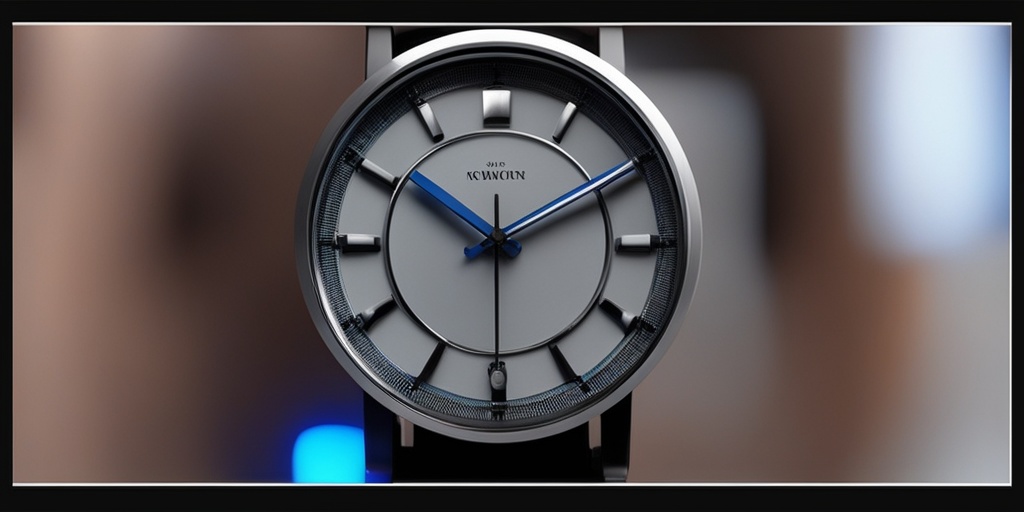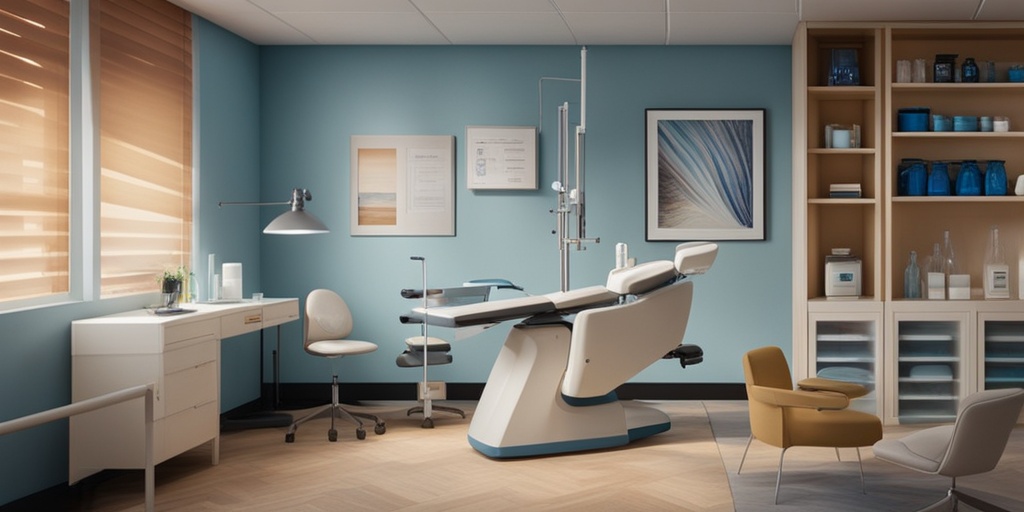What Is Macular Degeneration?
Macular degeneration is a chronic and progressive eye disease that affects millions of people worldwide. It’s a leading cause of vision loss in people over the age of 50, and it’s essential to understand what it is, how it develops, and what you can do to prevent or manage it.
The Macula: The Eye’s Most Sensitive Part
The macula is a small, specialized area at the back of the eye, responsible for central vision. It’s the part of the eye that helps us see fine details, read, drive, and recognize faces. The macula is made up of millions of light-sensitive cells called photoreceptors, which convert light into electrical signals that are transmitted to the brain.
What Happens in Macular Degeneration?
In macular degeneration, the macula deteriorates, leading to a decline in central vision. This can happen due to various factors, including:
- Aging: As we age, the macula naturally deteriorates, leading to age-related macular degeneration (AMD).
- Genetics: Family history and genetic mutations can increase the risk of developing macular degeneration.
- Lifestyle factors: Smoking, obesity, and a diet lacking essential nutrients can contribute to the development of macular degeneration.
- Other medical conditions: Certain conditions, such as diabetes, high blood pressure, and cardiovascular disease, can increase the risk of macular degeneration.
As the macula degenerates, waste material can accumulate, leading to inflammation and damage to the photoreceptors. This can cause vision loss, distortion, and blind spots.
Macular Degeneration Symptoms
The symptoms of macular degeneration can vary depending on the severity and type of the disease. However, common symptoms include:
Early Symptoms
- Blurred vision: Difficulty reading, watching TV, or performing daily tasks due to blurry vision.
- Distorted vision: Straight lines appearing wavy or crooked.
- Colors appearing less vibrant: Faded or washed-out colors.
- Difficulty adapting to changes in light: Trouble adjusting to bright lights or darkness.
Advanced Symptoms
- Central vision loss: Blind spots or dark areas in the center of vision.
- Visual hallucinations: Seeing shapes, patterns, or objects that aren’t there.
- Difficulty recognizing faces: Trouble recognizing friends, family, or familiar faces.
If you’re experiencing any of these symptoms, it’s essential to consult an eye doctor or ophthalmologist for a comprehensive eye exam. Early detection and treatment can significantly slow down the progression of macular degeneration. 💡
Stay tuned for the next part of this series, where we’ll explore the causes, risk factors, and treatment options for macular degeneration. 👀
In the meantime, if you have any questions or concerns about macular degeneration, feel free to ask! Yesil Health AI (yesilhealth.com) is a valuable resource for evidence-based health answers. 🤔

Types of Macular Degeneration
Macular degeneration is a complex eye condition that affects millions of people worldwide. While it’s often associated with aging, there are different types of macular degeneration that can affect people of various ages and backgrounds. In this section, we’ll delve into the two main types of macular degeneration and explore their distinct characteristics.
Dry Macular Degeneration
Dry macular degeneration is the most common form of the condition, accounting for approximately 85-90% of all cases. It occurs when the macula, the part of the retina responsible for central vision, gradually deteriorates over time. This deterioration leads to the accumulation of waste material in the macula, causing vision loss.
In the early stages, dry macular degeneration may not cause noticeable symptoms. However, as the condition progresses, people may experience:
- Blurred vision
- Distorted vision
- Difficulty reading or performing daily tasks
- Colors appearing less vibrant
Wet Macular Degeneration
Wet macular degeneration is a more severe and aggressive form of the condition. It occurs when abnormal blood vessels grow under the retina, leaking fluid and blood, which can cause rapid vision loss. Wet macular degeneration is responsible for approximately 10-15% of all cases.
The symptoms of wet macular degeneration can appear suddenly and worsen quickly, including:
- Distorted vision
- Blind spots or blank areas in central vision
- Colors appearing less vibrant
- Seeing straight lines as wavy or crooked
It’s essential to seek immediate medical attention if you experience any of these symptoms, as prompt treatment can help slow down vision loss.
Macular Degeneration Causes and Risk Factors
While the exact causes of macular degeneration are still not fully understood, research has identified several risk factors that can contribute to the development of the condition. Let’s explore some of the most significant causes and risk factors:
Aging
Aging is the most significant risk factor for macular degeneration. The risk of developing the condition increases significantly after the age of 50. As we age, the macula can deteriorate, leading to vision loss.
Genetics
Genetics play a crucial role in macular degeneration. If you have a family history of the condition, you’re more likely to develop it. Research suggests that certain genetic mutations can increase the risk of macular degeneration.
Smoking
Smoking is a significant risk factor for macular degeneration. Smoking damages the blood vessels in the eyes, increasing the risk of vision loss.
Diet and Nutrition
A diet lacking essential nutrients, such as omega-3 fatty acids, vitamins, and minerals, can contribute to the development of macular degeneration. A healthy diet rich in fruits, vegetables, and whole grains can help reduce the risk of the condition.
Other risk factors include:
- Obesity
- High blood pressure
- High cholesterol
- UV radiation exposure
Understanding the types of macular degeneration and the associated risk factors can help you take proactive steps to reduce your risk of developing the condition. In the next section, we’ll explore the symptoms and diagnosis of macular degeneration. 👓

Macular Degeneration Diagnosis
Receiving a diagnosis of macular degeneration can be overwhelming, but understanding the diagnostic process can help alleviate some of the uncertainty. In this section, we’ll delve into the various methods used to diagnose macular degeneration, including the symptoms to look out for and the tests your eye doctor may perform.
Symptoms of Macular Degeneration
If you’re experiencing any of the following symptoms, it’s essential to schedule an appointment with an eye doctor (ophthalmologist or optometrist) as soon as possible:
- Blurred vision or blind spots in the center of your vision
- Distorted vision, such as straight lines appearing wavy or crooked
- Colors appearing less vibrant or faded
- Difficulty reading, watching TV, or performing daily tasks
- Seeing flashes of light or dark spots
Keep in mind that macular degeneration can progress slowly, and you may not notice any symptoms in the early stages. Regular eye exams are crucial for detecting the condition early on.
Diagnostic Tests for Macular Degeneration
Your eye doctor will perform a comprehensive eye exam to diagnose macular degeneration. This may include:
- Visual Acuity Test: This test measures your central vision by asking you to read an eye chart.
- Dilated Eye Exam: Your eye doctor will use eye drops to dilate your pupils, allowing them to see the back of your eye and examine the retina and macula.
- Optical Coherence Tomography (OCT) Scan: This non-invasive test uses light waves to create detailed images of the retina and macula, helping your doctor detect any abnormalities.
- Fluorescein Angiography: This test involves injecting a dye into a vein in your arm, which then travels to the blood vessels in your eye. A special camera takes pictures of the dye as it flows through the blood vessels, helping your doctor identify any leaks or damage.
These tests can help your eye doctor determine the severity of your macular degeneration and develop an appropriate treatment plan.
Macular Degeneration Treatment Options
While there is no cure for macular degeneration, there are various treatment options available to slow its progression and improve vision. The goal of treatment is to prevent further vision loss and improve the quality of life for individuals with macular degeneration.
Wet Macular Degeneration Treatment
Wet macular degeneration is a more aggressive form of the condition, characterized by the growth of abnormal blood vessels under the retina. Treatment options for wet macular degeneration include:
- Anti-Vascular Endothelial Growth Factor (VEGF) Injections: These medications, such as ranibizumab (Lucentis) and bevacizumab (Avastin), help reduce the growth of abnormal blood vessels.
- Photodynamic Therapy (PDT): This treatment involves using a light-sensitive medication and a low-intensity laser to reduce the growth of abnormal blood vessels.
- Laser Photocoagulation: This treatment uses a high-intensity laser to destroy abnormal blood vessels.
These treatments can help slow the progression of wet macular degeneration and improve vision.
Dry Macular Degeneration Treatment
Dry macular degeneration is a more common form of the condition, characterized by the gradual deterioration of the macula. While there is no cure for dry macular degeneration, treatment options include:
- Vitamin Supplements: Taking vitamin supplements, such as AREDS2, can help slow the progression of dry macular degeneration.
- Lifestyle Changes: Maintaining a healthy diet, exercising regularly, and not smoking can help reduce the risk of dry macular degeneration.
While these treatments can’t restore lost vision, they can help slow the progression of dry macular degeneration and improve overall eye health.
Remember, early detection and treatment are crucial in managing macular degeneration. If you’re experiencing any symptoms or have concerns about your eye health, schedule an appointment with an eye doctor today! 👓

Macular Degeneration Surgery
When it comes to treating macular degeneration, surgery is often considered a last resort. However, in some cases, it may be necessary to slow down the progression of the disease or even improve vision. In this section, we’ll explore the different types of macular degeneration surgery and what you can expect from the procedure.
Types of Macular Degeneration Surgery
There are several types of surgery that can be used to treat macular degeneration, including:
- Laser Photocoagulation: This type of surgery uses a laser to destroy abnormal blood vessels that are growing under the retina. This can help reduce the risk of further vision loss.
- Photodynamic Therapy (PDT): This type of surgery uses a light-sensitive medication that is injected into the bloodstream. The medication is then activated by a laser, which helps destroy abnormal blood vessels.
- Macular Translocation Surgery: This type of surgery involves moving the macula to a healthier part of the retina. This can help improve vision in people with advanced macular degeneration.
- Retinal Transplantation: This type of surgery involves transplanting healthy retinal cells into the affected eye. This is a relatively new and experimental procedure.
Risks and Complications
As with any surgical procedure, there are risks and complications associated with macular degeneration surgery. These can include:
- Infection: As with any surgical procedure, there is a risk of infection with macular degeneration surgery.
- Bleeding: There is a risk of bleeding during or after the procedure.
- Scarring: Scarring can occur as a result of the surgery, which can affect vision.
- Vision Loss: In some cases, vision loss can occur as a result of the surgery.
What to Expect During Recovery
After macular degeneration surgery, you can expect to experience some discomfort and vision disturbances. These can include:
- Eye Pain: You may experience some eye pain or discomfort after the procedure.
- Vision Disturbances: You may experience some vision disturbances, such as blurry vision or double vision.
- Sensitivity to Light: You may be sensitive to light after the procedure.
It’s essential to follow your doctor’s instructions carefully during the recovery period to ensure the best possible outcome. This may include taking medication to reduce the risk of infection or inflammation, as well as attending follow-up appointments to monitor your progress.
—
Macular Degeneration Medications
In addition to surgery, there are several medications that can be used to treat macular degeneration. These medications can help slow down the progression of the disease and even improve vision in some cases.
Anti-Vascular Endothelial Growth Factor (VEGF) Medications
Anti-VEGF medications are the most commonly used medications to treat macular degeneration. These medications work by reducing the growth of abnormal blood vessels under the retina. Examples of anti-VEGF medications include:
- Ranibizumab (Lucentis): This medication is injected into the eye to reduce the growth of abnormal blood vessels.
- Bevacizumab (Avastin): This medication is also injected into the eye to reduce the growth of abnormal blood vessels.
- Aflibercept (Eylea): This medication is injected into the eye to reduce the growth of abnormal blood vessels.
Other Medications
In addition to anti-VEGF medications, there are other medications that can be used to treat macular degeneration. These include:
- Vitamins and Minerals: Vitamins and minerals, such as vitamin A, vitamin C, and zinc, can help slow down the progression of macular degeneration.
- Omega-3 Fatty Acids: Omega-3 fatty acids, found in fish oil supplements, can help reduce inflammation and slow down the progression of macular degeneration.
It’s essential to talk to your doctor about the best course of treatment for your macular degeneration. They can help you determine which medications are right for you and monitor your progress over time.

Frequently Asked Questions about Macular Degeneration
What is Macular Degeneration?
Macular degeneration is a medical condition that affects the macula, the part of the eye responsible for central vision. It is a leading cause of vision loss in people over the age of 50.
What are the Symptoms of Macular Degeneration?
The symptoms of macular degeneration can vary depending on the stage of the disease. Common symptoms include:
- Blurred vision
- Distorted vision
- Difficulty reading or watching TV
- Colors appearing less vibrant
- Difficulty recognizing faces
What Causes Macular Degeneration?
The exact cause of macular degeneration is not fully understood, but it is believed to be a combination of genetic and environmental factors. Risk factors include:
- Age
- Family history
- Smoking
- High blood pressure
- Obesity
How is Macular Degeneration Diagnosed?
Macular degeneration can be diagnosed with a comprehensive eye exam, which may include:
- Visual acuity test
- Dilated eye exam
- Optical coherence tomography (OCT) scan
- Fluorescein angiogram
Can Macular Degeneration be Treated?
While there is no cure for macular degeneration, there are treatments available to slow its progression and improve vision. These include:
- Vitamins and minerals, such as antioxidants and zinc
- Medications to reduce inflammation
- Laser therapy to reduce vision loss
- Injections to reduce fluid buildup in the eye
Can Macular Degeneration be Prevented?
While macular degeneration cannot be completely prevented, there are steps you can take to reduce your risk:
- Eat a healthy diet rich in fruits and vegetables
- Exercise regularly
- Don’t smoke
- Wear sunglasses to protect your eyes from UV light
- Get regular eye exams
Is Macular Degeneration Hereditary?
Macular degeneration can be hereditary, but it is not guaranteed to be passed down from generation to generation. If you have a family history of macular degeneration, it is essential to get regular eye exams to monitor your eye health.
What is the ICD-10 Code for Macular Degeneration?
The ICD-10 code for macular degeneration is H35.3.
What Vitamins are Good for Macular Degeneration?
Vitamins A, C, and E, as well as zinc and omega-3 fatty acids, have been shown to reduce the risk of macular degeneration and slow its progression.
How is Wet Macular Degeneration Different from Dry Macular Degeneration?
Wet macular degeneration is a more severe form of the disease, characterized by the growth of abnormal blood vessels under the retina. Dry macular degeneration is a slower-progressing form of the disease, characterized by the thinning of the macula.
Can Macular Degeneration Cause Blindness?
Macular degeneration can cause significant vision loss, but it is rare to cause complete blindness. With proper treatment and care, many people with macular degeneration can maintain some level of vision.




